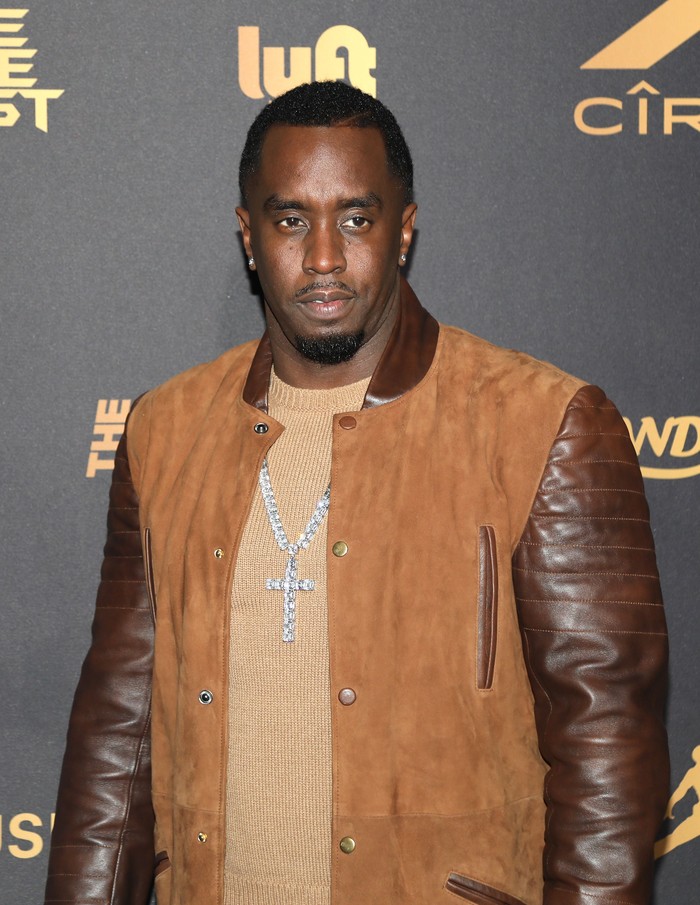In the world of entertainment, it’s common to see artists rise to stardom only to face unforeseen challenges. Some of the biggest names in music have found themselves in the middle of heated controversies, but few revelations have been as shocking as Michael Jackson’s warnings about Tommy Mottola and Sean “Diddy” Combs. Jackson, the King of Pop, once hinted that the music industry harbored dark secrets—particularly surrounding these two powerful figures. Was he trying to alert us to something deeper?

Michael Jackson’s Cryptic Warnings
During a famous public appearance in 2002, Michael Jackson stunned fans and the media when he openly accused Tommy Mottola, then chairman of Sony Music, of being “devilish.” The usually reserved Jackson described Mottola as someone who manipulated and exploited artists, claiming that Mottola was part of a larger problem plaguing the industry. But this wasn’t the first time Jackson hinted at corrupt dealings in the music world. He also expressed concerns about other major players, including Diddy, although these accusations were more subtle.
Jackson’s choice to speak out publicly about such influential figures was risky, but he seemed determined to expose what he believed was a system set up to control and profit from the talent of artists, while keeping them under strict supervision.

Tommy Mottola: A Powerful but Controversial Figure
Tommy Mottola’s legacy as a music executive is well-known. Under his leadership, Sony Music became a powerhouse, propelling the careers of stars like Mariah Carey, Celine Dion, and Michael Jackson himself. But his tenure was also marred by rumors of heavy-handed control over artists, particularly those who were vulnerable or new to the industry.
Mariah Carey, Mottola’s ex-wife, has also spoken about the darker side of her relationship with him, suggesting that Mottola exerted significant control over her career and personal life. Jackson’s public statements seemed to support these claims, painting Mottola as someone who allegedly exploited artists for his own gain.
Diddy: A Different Side of the Industry?
While Tommy Mottola’s name has often been linked to industry control and power plays, Sean “Diddy” Combs represents a different facet of the business. As a producer, rapper, and entrepreneur, Diddy helped shape the careers of artists like The Notorious B.I.G., Mary J. Blige, and Faith Evans. Yet, Diddy too has faced accusations of controlling behavior, particularly with artists signed to his Bad Boy Records label.
There have been stories of artists under Diddy’s wing claiming they were unfairly treated or left with little control over their music and finances. Despite his massive success, these whispers have cast a shadow over his reputation, hinting at a darker side to his business dealings.
Was Michael Jackson Trying to Protect Future Generations?
As we revisit Michael Jackson’s comments, it’s hard not to wonder if he was trying to protect future generations of musicians from the pitfalls he had experienced. Was Jackson warning us about the power dynamics in the music industry? Was he trying to expose a system where executives like Mottola and figures like Diddy held too much control over artists’ lives and careers?
Jackson’s warnings took place over two decades ago, but the concerns he raised still resonate in today’s music industry. Many artists continue to speak out about exploitation and control, further validating Jackson’s concerns. His decision to call out such powerful figures was seen as bold at the time, but in hindsight, it may have been the King of Pop’s attempt to shed light on an ongoing problem.
Conclusion: A Legacy of Unanswered Questions
The dark secret of Tommy Mottola and Diddy that Michael Jackson alluded to may never be fully uncovered, but the whispers of control and manipulation have been enough to spark curiosity and concern. As fans, we are left to wonder: Was Jackson simply reacting to personal grievances, or was he genuinely trying to protect other artists from a harmful system?
In the end, Jackson’s cryptic warnings have left a lasting impression on the music industry, reminding us that behind the glittering façade of fame, there may be untold stories of struggle and exploitation. And perhaps, just perhaps, Michael Jackson was trying to show us that the real danger lies in who holds the reins of power behind the scenes.





